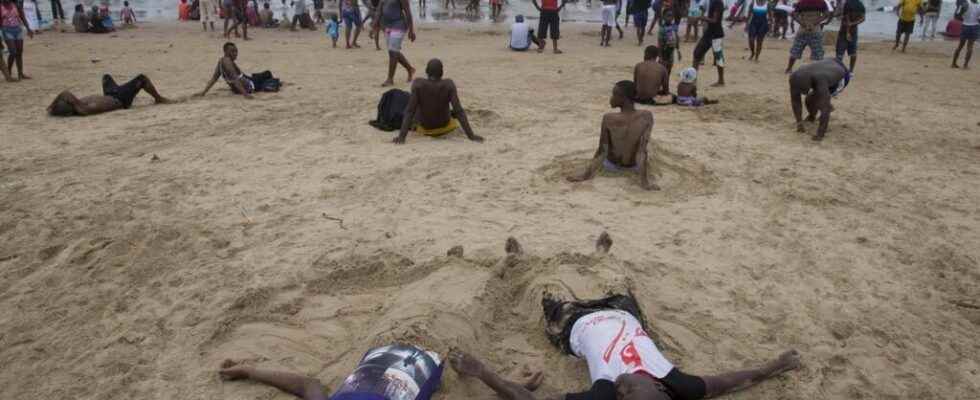In South Africa, the end of the year coincides with the austral summer and the long school holidays. One of the meeting places to spend time with friends or family, on a small budget, are the beaches of Durban, on the east coast of the country. But due to pollution, several beaches remain closed.
With our correspondent in Johannesburg, Claire Bargeles
According to the municipality, nearly one million local tourists are expected each year at this end of the year period. The figures for 2022 should also be good, as the country enjoys the first time in two years of end-of-year celebrations without the Covid-19. Nevertheless, the pleasure of bathing is thwarted due to pollution.
It is the E.coli bacterium that threatens the beaches around Durban and prevents bathers who traditionally flock during the end-of-year celebrations from enjoying the Indian Ocean serenely. These micro-organisms present in the faeces indicate a high level of pollution by wastewater and can cause infections, most often benign, of the skin and the digestive system.
At issue are aging water treatment facilities damaged by riots last year and then floods this year, causing sewage spills into rivers and the ocean.
Read also: Floods in South Africa: Durban faces the consequences of climate change
Vacationers remain wary, even vis-à-vis the reopened beaches. The mayor of Durban had to put himself in the water in front of the journalists, at the beginning of the month, to encourage swimming.
Added to this is the death of three people, ten days ago, swept away by a rogue wave which also worried visitors who prefer to stay on the shore.
